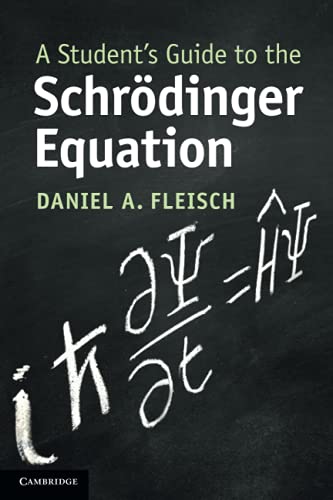What are
/r/quantummechanics'
favorite Products & Services?
From 3.5 billion Reddit comments
The most popular Products mentioned in /r/quantummechanics:
The most popular reviews in /r/quantummechanics:
The first point is fairly well documented. Rejecting Everett wasn't even because of any particulary bad presentation, it was more just the "usual" momentum-bias that was in effect by the time. To put it bluntly, Bohr himself just didn't give the idea the attention and time it deserves. However, his cohorts did, and their conclusion/judgement over Everett's interpretation could be seen as dogmatically inspired. IMO. Peter Byrne's Everett-biography is a good source on this.
>Where does the energy come from to replicate the universe constantly?
It is not even a given that anything is "replicated" as such. In fact most presentations I've seen assume that the universal wavefunction and its associated Hilbert space are "eternal": the states exist. The correct questions then would be "how do we(*) come across the states we do" and "what's there about observing one-state-at-a-time", ie. the temporal sequencing of events.
(*) or the rock.
I congratulate your clarity here, and agree with all you asserted--except about the central point of this discussion. You are content in believing what appears to be "magical,"-- indeed a derogatory terming of the community faith in an instantaneous spooky, nonlocal, signal.
However, that's not the complete picture about what I have learned in the ten years post retirement. Specifically, what I have argued about above pertains to this material domain that we ordinarily experience. Based on Out of Body Experience (OBE) reports, with the OBE induced by trauma and/or meditation, during lucid dreams, and very infrequently spontaneously, there exists another domain (not many worlds, which is another fiction flowing from the false HUP) that most folks refer to as spiritual. Before retirement I was a materialistic agnostic who thought such ideas were nonsense. However, there is actually good evidence for discarnate consciousness. The 2016 text, The Self Does not Die
( https://www.amazon.com/Self-Does-Not-Die-Experiences/dp/0997560800/ref=sr\_1\_1?crid=2S25EM1N4DHS0&dchild=1&keywords=titus+rivas&qid=1589967631&s=books&sprefix=titus+rivas%2Cstripbooks%2C224&sr=1-1 ) documents over a hundred cases in which the reports from hospitalized patients who claimed to see distant activities, unavailable to normal sense-perception, were checked out by researchers and found highly accurate. My own findings and conclusions have been published, and are well summarized here (https://near-death.com/near-death-experience-of-space-time-and-consciousness/ ).
I trust we have had a good discussion which has now reached a conclusion, if not complete agreement.
Despite your numerous arm waiving arguments, none directly attacked the findings about particle reality discovered from weak measurement research publications by others, and none directly refuted my logical inferences that the HUP was the result of an ironically mistaken application of otherwise sound Operationalism. The lack of any sound refutation leaves me encouraged.
In addition to retirement research on the foundations of QM, I have over the past decade engaged in research about the nature of consciousness. On a lark, I decided to examine the literature on the Near Death Experience (NDE), although expecting to find that the NDE reports were only about hallucinations induced by trauma. Instead, I found substantial evidence supporting the reality of discarnate consciousness (see. for example https://www.amazon.com/Self-Does-Not-Die-Experiences/dp/0997560800/ref=sr\_1\_1?crid=2S25EM1N4DHS0&dchild=1&keywords=titus+rivas&qid=1589967631&s=books&sprefix=titus+rivas%2Cstripbooks%2C224&sr=1-1 ). My findings and conclusions have been published, with a good summary here ( https://near-death.com/near-death-experience-of-space-time-and-consciousness/ ). Enjoy.
<u>The Structure of Scientific Revolutions</u> could fall out of the sky and land square on his head -- he would just call it an ad hominem.
Maybe? The author certainly has biases (hates the CI interpretation) but I remember the historical exploration to be good. Just have to watch out for his opinions and not construe them as facts.
Gotcha.
There's a book called QED: The Strange Theory of Light and Matter written by Richard Feynman that gives a gentle introduction to some of these topics. It's written in a way that doesn't get overly mathy or complex, but still helps you build some intuition about the theory. I definitely recommend if you're interested in learning more.








